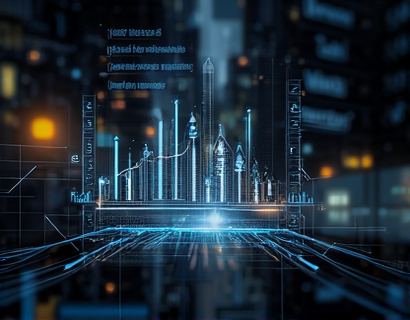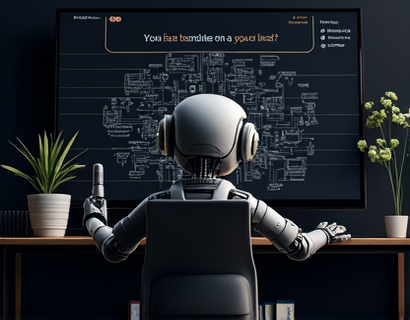Smart Home Elevation: Unveiling the Latest Innovative Appliances for Modern Living
In the rapidly evolving landscape of home technology, the concept of smart home elevation has emerged as a transformative force, redefining the way we live and interact with our living spaces. This article delves into the latest innovations in smart appliances, highlighting their exceptional quality, seamless integration, and unbeatable value. These cutting-edge devices are not just gadgets; they are the cornerstone of a smarter, more efficient, and enjoyable home environment.
The modern home is no longer just a place to rest and recharge. It has become a hub of technology and convenience, where every appliance plays a role in enhancing daily life. Smart home elevation goes beyond the basics of automation, offering a holistic approach to home living. From intelligent climate control to advanced security systems, these appliances work in harmony to create a living space that adapts to your needs and preferences.
Intelligent Climate Control
One of the most impactful areas of smart home elevation is climate control. Gone are the days of manual thermostat adjustments. Modern smart thermostats learn your schedule and preferences, automatically adjusting temperatures to optimize comfort and energy efficiency. These devices can be controlled remotely via smartphones, ensuring your home is always at the perfect temperature, whether you're arriving from work or leaving for the day.
Advanced models integrate with other smart devices, such as smart lights and security systems, to create a cohesive and efficient home environment. For instance, when the smart security system detects that no one is home, it can adjust the thermostat to an energy-saving mode without your intervention. This level of automation not only enhances convenience but also significantly reduces energy costs.
Smart Lighting Systems
Lighting is another critical aspect of smart home elevation. Traditional light switches are being replaced by intelligent lighting systems that offer unparalleled flexibility and control. These systems can be programmed to mimic natural light cycles, improving mood and sleep quality. They can also be controlled through voice commands or smartphone apps, allowing you to adjust brightness, color, and even create custom scenes for different activities or moods.
Energy efficiency is a key benefit of smart lighting. LED bulbs, when paired with smart technology, consume significantly less power than traditional bulbs while providing superior brightness and longevity. Some systems even use motion sensors to turn lights on and off automatically, ensuring that energy is not wasted when rooms are unoccupied.
Advanced Security Systems
Home security has evolved dramatically with the advent of smart technology. Modern security systems are more comprehensive and user-friendly than ever before. These systems typically include smart locks, surveillance cameras, motion sensors, and alarm systems, all connected through a central hub or cloud-based platform.
Smart locks offer keyless entry, allowing you to grant access to guests or service providers without the need for physical keys. They can also send notifications to your smartphone when someone enters or exits the home, providing an added layer of security and peace of mind. Surveillance cameras with night vision and cloud storage ensure that your home is monitored 24/7, and you can review footage from anywhere in the world.
Integration with smart home assistants like Amazon Alexa or Google Assistant further enhances the functionality of these security systems. Voice commands can arm or disarm the system, check camera feeds, and even adjust lighting to create the illusion of occupancy when you're away.
Smart Kitchen Appliances
The kitchen is often the heart of the home, and smart appliances are revolutionizing the way we cook and manage meal preparation. Smart refrigerators, ovens, and dishwashers are just a few examples of how technology is transforming this space.
Smart refrigerators come equipped with features like built-in touchscreens, Wi-Fi connectivity, and even cameras inside the fridge, allowing you to check contents remotely. These appliances can also suggest recipes based on the ingredients you have on hand, helping to reduce food waste and inspire meal planning. Some models even integrate with grocery delivery services, making it easier to order missing items.
Smart ovens offer precise temperature control and multiple cooking modes, ensuring perfect results every time. They can be preheated remotely, and some even have self-cleaning cycles that can be scheduled for convenient maintenance. Integration with smart home systems allows you to monitor and control the oven from your smartphone, receiving notifications when your food is ready.
Dishwashers have also seen significant advancements. Smart dishwashers can be programmed to run during off-peak hours to save on energy costs. They often come with self-diagnosing features that alert you to any issues, reducing the need for costly repairs. Some models even have built-in water filters, ensuring that your dishes are always spotlessly clean.
Voice-Activated Home Automation
Voice-activated home automation is a game-changer, making smart home technology more accessible and user-friendly. Devices like Amazon Echo and Google Nest Hub serve as central hubs for controlling various smart appliances and systems around the home. With simple voice commands, you can adjust the thermostat, turn on lights, lock doors, and even start your coffee maker in the morning.
The convenience of voice control extends to entertainment systems as well. Smart speakers can stream music, podcasts, and audiobooks, and integrate with smart TVs and streaming devices for a seamless entertainment experience. For those with visual impairments, voice-activated assistants provide an invaluable tool for managing daily tasks and accessing information.
Energy Management and Sustainability
One of the most significant benefits of smart home elevation is the focus on energy management and sustainability. Smart home systems are designed to optimize energy usage, reducing waste and lowering utility bills. For example, smart plugs can monitor and control the power consumption of individual devices, turning them off when not in use to prevent phantom energy draw.
Solar panels and energy storage systems, when integrated with smart home technology, can further enhance sustainability. These systems can store excess energy generated during the day for use at night or during power outages, reducing reliance on the grid. Smart home apps provide real-time data on energy usage and production, helping homeowners make informed decisions about their energy consumption.
Enhanced Comfort and Well-Being
Beyond convenience and efficiency, smart home elevation contributes to enhanced comfort and well-being. Smart air purification systems monitor indoor air quality and automatically activate when pollutants are detected, ensuring a healthier living environment. These systems can also be integrated with heating and cooling systems to maintain optimal humidity levels, reducing the risk of respiratory issues and allergies.
Smart bedding and mattress sensors can track sleep patterns and provide insights to improve sleep quality. Some advanced beds even adjust firmness and temperature based on your preferences, creating the perfect sleeping environment. These features not only enhance comfort but also promote better health and wellness.
Future Trends and Innovations
The future of smart home elevation is exciting, with ongoing advancements promising even more innovative appliances and integrated systems. One area of focus is the integration of artificial intelligence (AI) and machine learning, allowing smart devices to become even more intuitive and personalized. AI-driven systems can predict your needs and preferences, automating tasks before you even have to ask.
Another trend is the development of interoperable standards, ensuring that devices from different manufacturers can work seamlessly together. This will create a more unified and flexible smart home ecosystem, giving users greater control and customization options. As 5G technology becomes more widespread, the responsiveness and reliability of smart home systems will continue to improve, opening up new possibilities for remote monitoring and control.
Sustainability will remain a key focus, with more appliances designed to be energy-efficient and environmentally friendly. The use of renewable energy sources, such as solar and wind, will become more integrated into smart home systems, further reducing the carbon footprint of modern living.










































